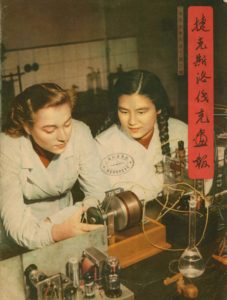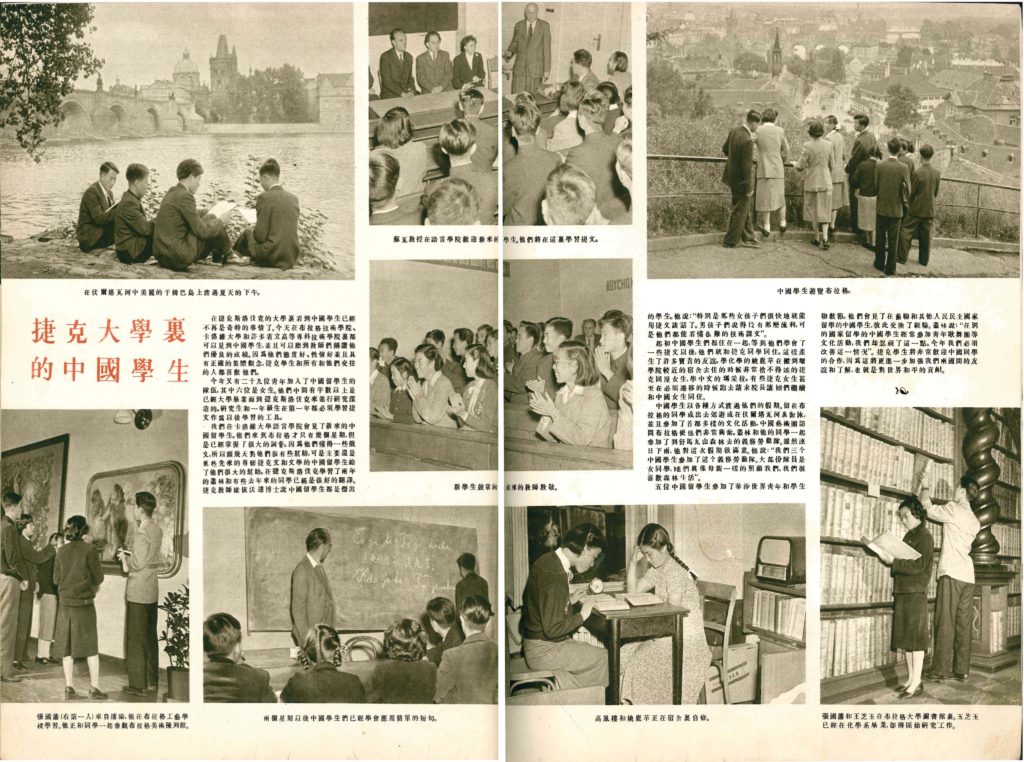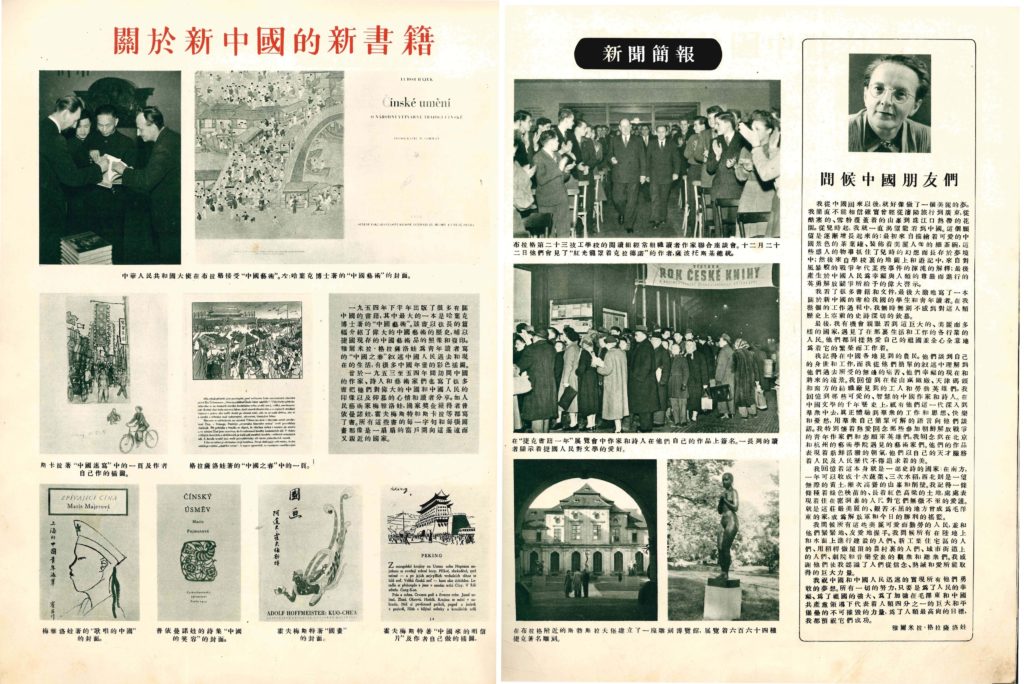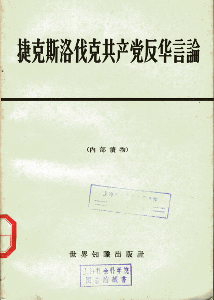Anti-Chinese Propaganda by the Czechoslovakian Communist Party (1965)
Anti-Chinese Propaganda by the Czechoslovakian Communist Party (1965)
This book, entitled The Anti-Chinese Propaganda aired by the Czechoslovakian Communist Party (Jiekesiluofake Gongchandang fan-Hua yanlun 捷克斯洛伐克共产党反华言论, 1965) offers a detailed insight into the deep feeling of insecurity in the People’s Republic of China which was caused by the reshuffling of the geopolitical situation in the early 1960s that in the end led to the irreconcilable split between the two global powers in communism, the Soviet Union and China.
The book starts with reports that the leaders of some communist states have succumbed to the Soviet guidelines, following the radical anti-Chinese propaganda since the publication of the „Open Letter of the Soviet Union’s Central Committee to all Party Organizations, to all Communists in the World” from July 14, 1963. Until July 1964 more than 16 states took part in the anti-Chinese propaganda. In fact, theirs does not differ much from the Soviet example as the authors show in their study of relevant sources and publications.

The Chinese translators emphasize that this book was published so as to understand the anti-Chinese propaganda as well as its function within the Communist International. The goal is to enlighten cadres of the CCP about Soviet anti-Chinese actions and to protect them against dangers afflicted to the Party and Marxism-Leninism.
The book contains (apart from a Chinese preface) uncommented translations of 76 articles published by the Communist Party of Czechoslovakia between July 15, 1963 and October 14, 1964. Modeled after an earlier publication introducing Anti-Chinese propaganda in Soviet newspapers and journals (苏联报刊反华言论), it was first released in December 1965 as an internal publication (neibu duwu). The translated articles criticize Beijing’s failure in the Great Leap Forward strongly, reject China’s ambitions to become a nuclear power and finally accuse the CCP of splitting the communist movement when claiming that Josip Broz Tito (1892 – 1980) was a Soviet agent, while the Soviets accused the Albanian leader Enver Hoxha (1908 – 1985) of being a Chinese agent. When in June 1960 on a congress of the Rumanian Communist Party Khrushchev (1894 – 1971) and Peng Zhen (1902 – 1997), Beijing’s mayor and member of the Politburo, clashed publicly, the Sino-Soviet split was completed and set an end to the friendly relations between Czechoslovakia and China that once had enabled the publication of a costly high-quality magazine called Czechoslovak Life that was also available in Chinese translation (捷克斯洛伐克画报). Being a part of Czechoslovakian propaganda abroad this magazine — published from 1953 until the early 1960s (last issue that I have found dates from December 1962) — provided the Chinese audience with deep insights in the modernization successes of the Eastern European country that were achieved also thanks to the communist solidarity with the Soviet Union.

The text of this month now paints a completely different picture. It is an insightful primary source in the conflict between the Soviet Union and the PRC. The conflict’s origin goes back to the late 1950s when Moscow – alarmed by the chaos in China after the Great Leap Forward – withdrew its offer to further support the PRC in its development, which also included the building of nuclear bombs. In 1959 Khrushchev met with Eisenhower, the President of the US, but refused to assist the PRC in its border conflict with India. Mao interpreted these actions as a big willingness on the Soviet side to cooperate with the West (such as in the case of Cuban missile crisis in 1962 where Premier Khrushchev withdraw instead of continuing confrontation), resulting in 1963 finally in the Chinese refusal to agree to the Limited Test Ban Treaty signed by the United States, the Soviet Union, and Great Britain in July 1963 that banned all nuclear tests in the atmosphere, in space, or underwater. The Chinese position on that matter was that this treaty was merely a deceiving scheme preventing China from developing its own defense abilities. This was the one of the final developments convincing Mao Zedong that the break with the USSR was more than justified. From September 1963 to July 1964, Mao published nine open letters criticizing every political view of Khrushchev. In the end, the fight between Khrushchev and Mao for the leadership claim of the communist movement resulted in a split – the schism of world communism.

Marc Matten
